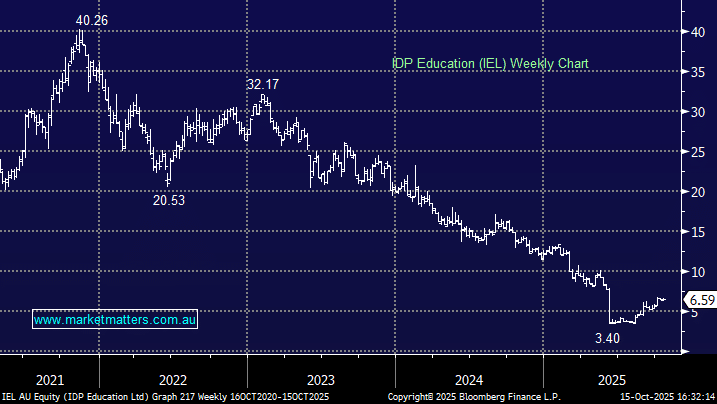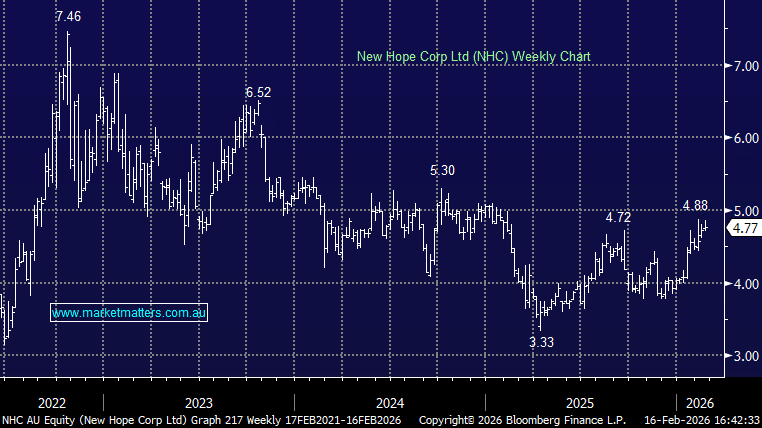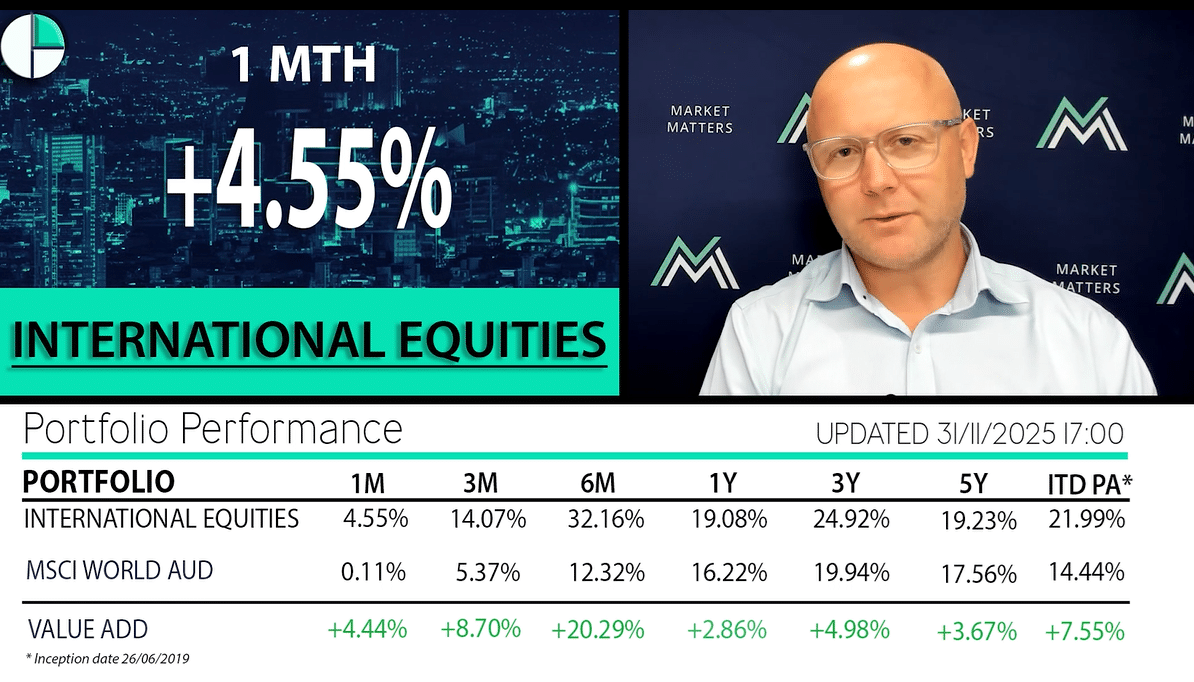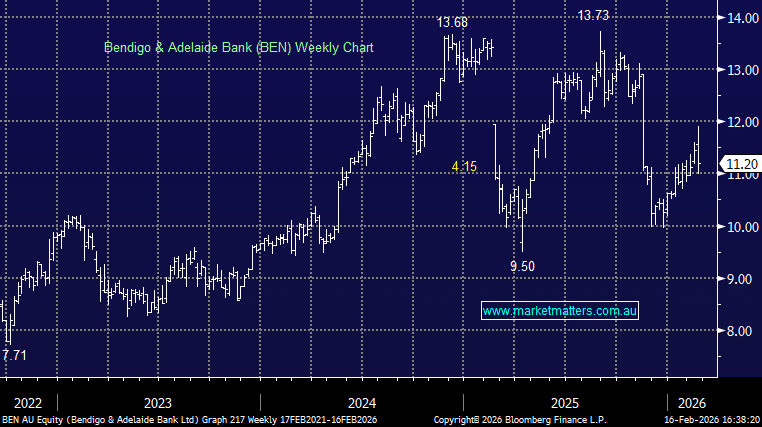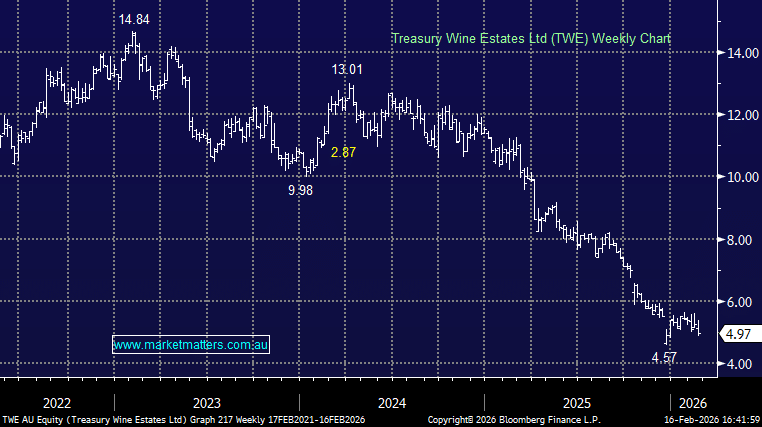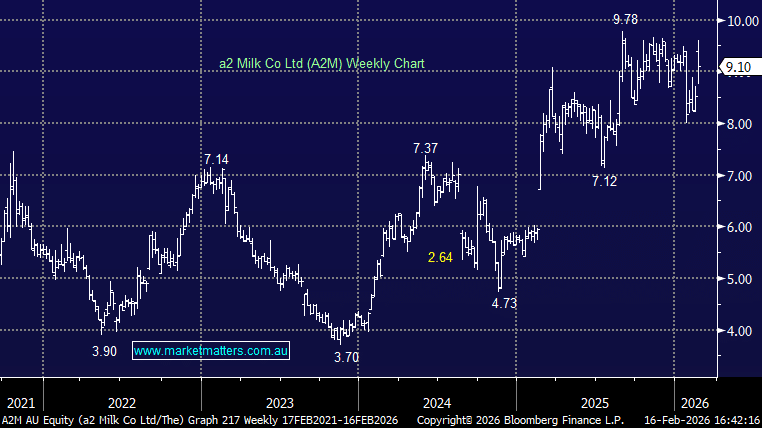IDP Education (IEL) rallied+3.5% on Wednesday with the Albanese government appearing poised to make changes to its visa processing system for international students, less than a year after it was introduced. Assistant Minister for International Education Julian Hill told a conference in Canberra on Wednesday morning that a new ministerial direction would come into effect in mid-November. With Hill acknowledging that the sector had been pummelled by numerous policy changes over the past two years, it feels like the worst is behind IEL. The current ministerial direction, known as 111, is supposed to slow visa processing for any university or college once they reach 80% of the quota assigned to them by the federal education department. Our interpretation, like the market, is that the process is set to be made quicker and easier.
In FY25, IEL generated 48% of its revenue from student placements and 47% from English language testing, with revenue down ~15% to $882mn. Government visa controls and the loss of its sole IELTS test centre status in certain countries have weakened IDP’s competitive position, leading to lower IELTS volumes, more competition, and reduced revenue, particularly in high-volume markets such as India. A glance at its share price illustrates the challenges IEL has faced over the last 4 years.
Visa controls affecting international students in countries like Australia, Canada, and the UK are often linked to political decisions and policy priorities rather than purely administrative or operational issues. However, while critics will claim that international students take away valuable spots from locals, international education does contribute around $45–50 billion pa to the Australian economy. It is our largest services export, ahead of tourism and other education-related services and not one that the government wants to hurt for too long, whatever political points are at stake.
- IEL is looking increasingly interesting at current depressed levels, with government policy set to become less onerous moving forward.

